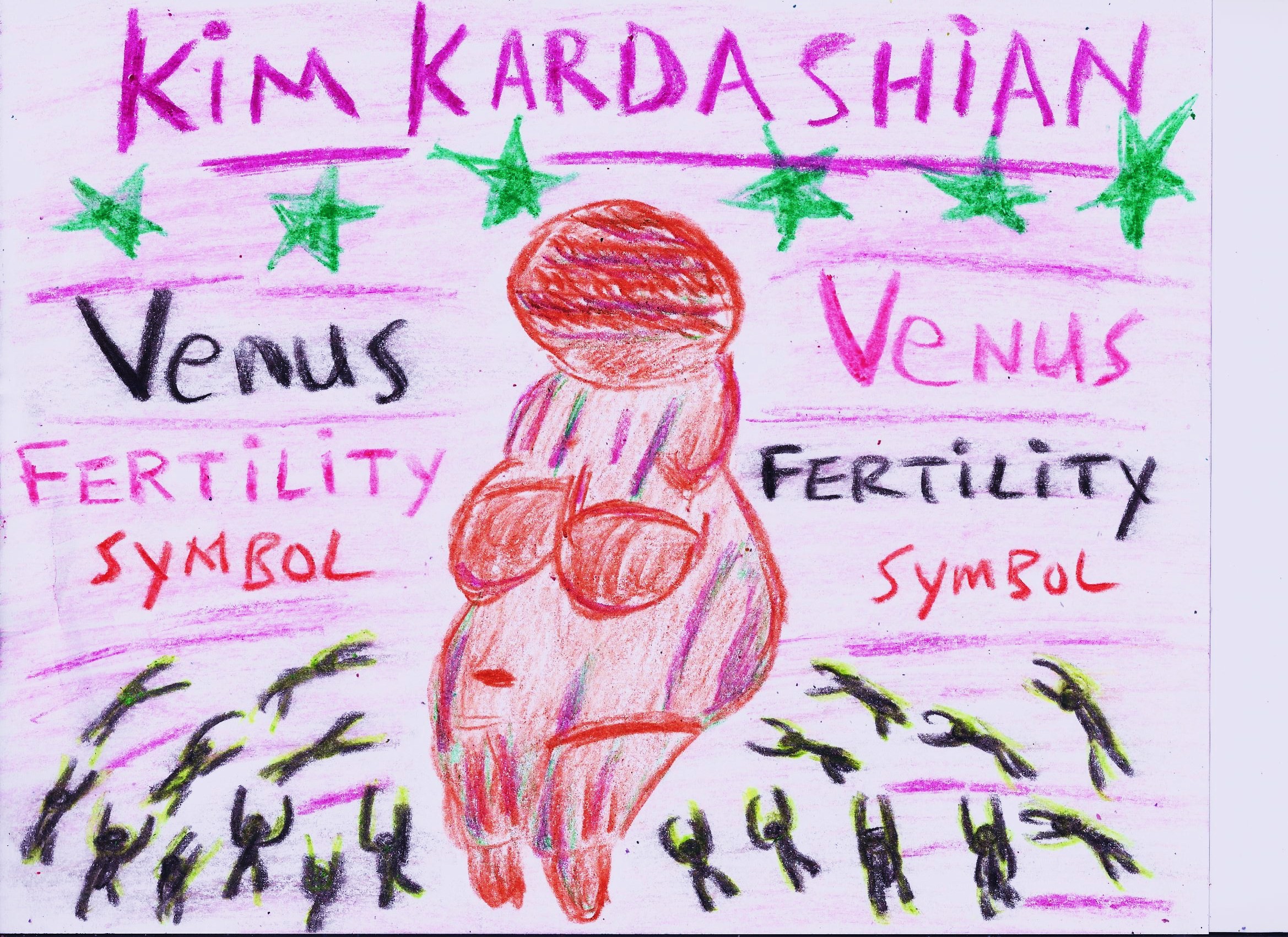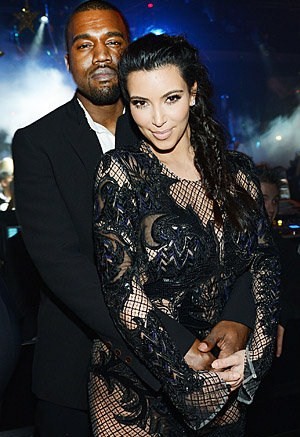Tao Lin: Extremely Sincere or Total Put On (??)
Tonight (I guess it’s last night by now), in the basement of The Elliott Bay Book Company here in Seattle, Tao Lin read a section of his new book, Tai Pei, to a crowd of about 70-80 people, most of whom were fans.
I’ve read very little of Tao Lin but being a part of the Indie Lit community I have heard his name quite a bit. And I do know that lots of people really like “Tao Lin” and Tao Lin’s writing. And lots of people really dislike “Tao Lin” and Tao Lin’s writing. And as we walked into the bookstore one of my new Seattle buddies underscored this with the phrase “very polarizing.” My friend was referring to Tao Lin’s writing but I guess he could just easily have been referring to “Tao Lin.”
Tao began by apologizing for being late (the reading had been pushed back from 7 to 8pm) and explained that he’d missed his 9:30 (a.m.) flight and then his new flight was delayed. Tao sounded a bit under the weather. A bit like he had a sore throat. But, the reading seemed to go ok.
The Q & A, though, is where things got interesting. And pretty quick. The 2nd question was about Tao’s use of Gchat and Gmail. This was, evidently, a touchy subject for Tao and from then on the Q & A, for the most part, was Tao bemoaning the negative reviews (and tweet) Tai Pei has received so far. READ MORE >
Love of God
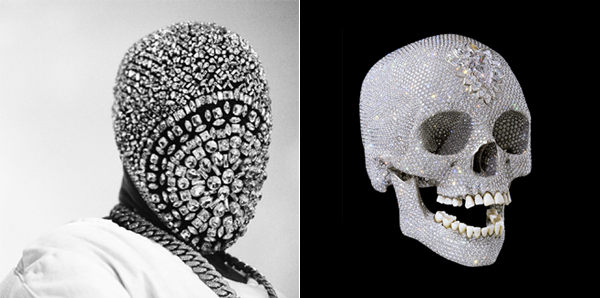
Kanye West, in keeping with a truncated periphery necessary for megalomania, has upgraded from hipster shutter shades to a high couture diamond mask (by Belgian fashion designer Maison Martin Margiela) whose stones, growing in carat, funnel into his money machine, that is, mouth. His favorite puns involve you swallowing his cum, which is why I prefer to listen to him with a can of ginger ale handy. Like cheesy pop songs of the mid-90s with that embarrassing rap interlude, today’s hip hop (Kanye, Drake, Frank Ocean) strains itself with melody, often auto-tuned. As Yeezus is released today, drying out all the fervent leaks a week prior, we’ve found — or perhaps created — a black Jesus whose relation to our sins seems less compassionate than complicit. Short of dying for our sins, he would rather watch. The sadness of the “real” Jesus story is that he was gracefully on our side, which seemed too good to be true, so we killed him. It is the story of a learned cynicism, our grand expulsion. In 1966, John Lennon said The Beatles were more popular than Jesus and was met with outrage from both the Christian right and populace. Lennon later explained he was referring to the decline of religion (though his Jesus complex eventually resurfaced with his Abbey Road white suit and Imagine white piano). Damien Hirst’s For the Love of God (2007) is a sculpture about economics. It cost £14,000,000 to produce and was exhibited at an asking price of £50,000,000, an instant 350% inflation for patrons perhaps too dense to see the sarcasm. Hirst has been obsessed with a Dahmer-esque clinical curiosity of what’s inside us, though his perverse pathos stops short at a grant. His work mocks the mortal’s concept of immortality. Self-aware to a degree, Kanye’s diamond mask probably has little to do with the diamond mining industry in Africa, which accounts for two-thirds of the world’s diamonds, and whose upsetting trade empowers warlords and insurgents. If there’s any thing to say, we are enamored with the spectacle of depth. The stage as a pulpit. Grandiose entitlement is rather American, and with that, Kanye stops being its critic. Tired of splooge allusions, his “I am a God” repeats the title over and over: I am a God / Hurry up with my damn massage, though each time I read that line I see “message,” perhaps delusional that there is one.
It really feels like summer. Here’s a video by the writer Juliet Escoria with blood and a bridge and . Feels like it’s going to be a great summer. A summer where we bleed out all that’s bad inside.
Pretty Little Truthers

Pretty Little Liars is a show about the relationships between women. They are young women, living in a small town in Pennsylvania, on a southern California set. It resembles the Gilmore Girls set.
Recently, I find myself uninterested in any other type of show.
There are a series of murders. The outfits are really bad and you can buy everything you see at Macy’s.
I just don’t feel like there is much merit in trying to make art about men.
It’s been done to death. My girlfriend encourages me to watch Mad Men. She wants to see the actors act. I feel like the parts about advertising are funny and sad, I’m a reflected nonsense, when I watch that show. It calms me.
Follow Her Home by Steph Cha
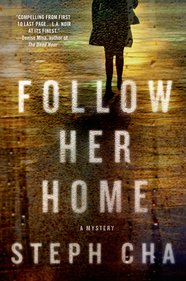 Follow Her Home
Follow Her Home
by Steph Cha
Minotaur Books, April 2013
288 pages / $24.99 Buy from Amazon or Macmillan
Like culture or a chronic condition, noir is a form of being in the world. Easily mistaken for the symptoms of its golden age—a particular black and white era in the imagination, a type of dress, a style of prose—noir is, nevertheless, loyal to none of that. Noir is a persistent suspicion, good at getting in to just about everything. Once inside, it sets to work, changing things—rearranging mental furniture and going monochromatic on the walls till all thoughts feng shui back to the same basic assumption: things are not what they appear.
Steph Cha’s Follow Her Home is a case of noir becoming terminal. It starts innocently enough. The novel’s protagonist Juniper Song, used to like to stay up late reading Raymond Chandler– so much so that she ruined her eyes doing it. The exploits of Phillip Marlowe served as her initiation, by proxy, into an underground world as remote from her nearly blemish-free child and young adulthood as any thing of fantasy could be. Nearly because she lost her father at a young age, before he could become a memory that would haunt her, but whose absence took on a presence when she recognized in Marlowe the figure of a father of the spiritual variety—someone to emulate.
By the time the events of Follow Her Home begin, Marlowe’s influence has trailed Juniper into her late twenties where she lives the ethereal life of an underemployed high-achiever on the drift. A first generation Korean-American with a degree from Yale, Juniper makes ends meet tutoring part time in Los Angeles, living a solitary life in a small, La Brea apartment—not unhappy, but not quite content—voraciously reading bleak detective tales to salve a trauma grimmer and more recent than the untimely demise of her unremembered father. When her old college friend Luke invites Juniper over, ostensibly for an apartment warming party at his posh new Hancock Park pad in a building called “The Marlowe,” only to reveal that he’d like her to snoop confidentially on Lori, another party guest who Luke believes may be secretly seeing his high-powered and unhappily married lawyer father, Juniper—like the soft-boiled wannabe she is—agrees.
June 17th, 2013 / 11:00 am
Jen Hofer’s SUMMER READS

Jen Hofer gives us her summer reading list:
***
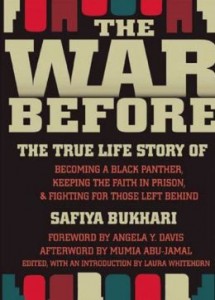 The War Before: The True Life Story of Becoming a Black Panther, Keeping the Faith in Prison and Fighting for Those Left Behind, Safiya Bukhari, ed. Laura Whitehorn (The Feminist Press, 2010)
The War Before: The True Life Story of Becoming a Black Panther, Keeping the Faith in Prison and Fighting for Those Left Behind, Safiya Bukhari, ed. Laura Whitehorn (The Feminist Press, 2010)
WITH
 Pantera negra. El arte revolucionario de Emory Douglas, ed. Sam Durant (Alias, 2012)
Pantera negra. El arte revolucionario de Emory Douglas, ed. Sam Durant (Alias, 2012)
A phenomenal collection of Black Panther Party newspaper covers and BPP posters and graphics by Emory Douglas, all translated into Spanish along with essays by Bobby Seale, Sam Durant, Kathleen Cleaver, St. Clair Bourne and Colette Gaiter. The history of the Black Panther Party and its tremendous power to instigate autonomous structures of mutual aid and community solidarity, accompanied by the history of the state repression that sought to obliterate The Black Panthers and other groups like them is absolutely relevant to contemporary struggles around race, class, incarceration, immigration, access to resources, and government repression today. If you have any question about that, or about the complexities of working within radical movements, The War Before should help to reinforce the sense that questions will abound always.
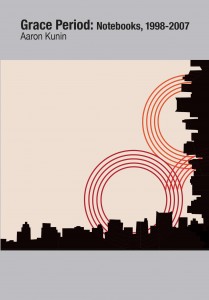 Grace Period: Notebooks, 1998-2007, Aaron Kunin (Letter Machine Editions, 2013)
Grace Period: Notebooks, 1998-2007, Aaron Kunin (Letter Machine Editions, 2013)
Here you will find at least two worlds, and then some. In an interview conducted by Tom Fleischmann in Seneca Review, Aaron Kunin said: “Is my interest in the gesture of withdrawal from the world compromised by the worldliness of the speaker positions in my writing? That is a real problem. The solution is dualism. Where in the world can I go that isn’t in the world? I can’t. To get out of the world, I need at least two worlds. That is the paradox of misanthropy: in rejecting society, you project another one.”
Fair warning: Aaron Kunin’s notes are totally addictive.
READ MORE >
June 17th, 2013 / 11:00 am
A Review of Patriot, by Laurie Saurborn Young
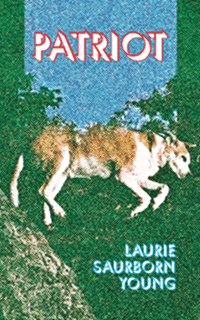 Patriot
Patriot
by Laurie Saurborn Young
Forklift, Ohio
32 pages / $5 Buy from Forklift, Ohio
Laurie Saurborn Young’s chapbook, Patriot, is a book of horizons, a book of lines – “of thunderstorms on the weather map,” of women on treadmills, of two hundred beer cans on the wall of a fourteen-year-old, of water towers and shuttered factories, of fighter planes above a parking lot in New England, of telephone poles and road kill, of “voters turned away.” The poems, thirteen total, each composed of twenty-six double-spaced lines, are each named “Patriot,” the same name as the book. This formal orderliness, along with the speaker’s measured yet persistent voice and the rank-and-file American subject matter, is in wonderful counterpoint to the great chaos of America inside the chapbook’s stapled pages. The speaker struggles to expand the definition of America, of course; but these are not Whitmanesque poems. Instead, there is a fierce constriction both in the music and imagery of these often-heavily enjambed lines, which create a shard-like collage of “America,” the place where the speaker struggles to locate herself.
The speaker of Patriot is decidedly female, and the theme of misogyny runs throughout the chapbook. The recurring image of the voting booth during an election year helps establish a sense of national urgency, and reminds the reader, specifically, of the 2012 presidential election, in which women’s rights were in the political spotlight, as right-wing politicians attacked the rights of women on multiple fronts. The speaker says, “Still throwing women in the water to see if is America.” Here, as in many of the lines of these poems, the poet uses epistrophe to delay the phrase we come to expect: “is America.” It’s a kind of reversal of Ginberg’s “America,” and gives the poems a much more feminine, feminist energy. The poems are bold, but they are not cocky or smug. They are not shouting at us. The inverted syntax and enjambments allow us to hear the internal voice of an American woman who feels genuine fear for her safety and her rights. The labyrinthine twists and turns in these poems are like a skier on a slalom – which is the exact metaphor Polish director Kristof Kieslowski used to describe what is was like to make films subject to strict censorship. In fact – and surprisingly – Kieslowski said that censorship helped him make better films. While Young’s poems are not subject to state censorship, we can hear the anxiety of utterance in this voice. These poems may at times sound cautious, but they are not afraid. On the contrary, they speak with candor, a seething anger, great intelligence, and a mesmerizing lyricism.
June 17th, 2013 / 11:00 am
Kim Kardashian & T.S. Eliot
I’m pissed! Kim Kardashian has just given birth, and well, this sucks. Sucks because this deprives us of a month full of pregnant Kim. A month full of big, beautiful Kim. A month full of tabloid shots in which Kim could grow into more astronomically and giddyingly, attractively large.
But, life goes on, as it must. (Sigh.) But I can yet glory in really big Kim! So, what follows are some cobbled together notes that I was working on but which kind of got lost in all my LeBron fantasias, among other things:
Standing in line to pay for our bananas and tick medication I notice that pregnant Kim Kardashian looks HUGE (unrealistically huge) on the cover of all the tabloid magazines. “They must be enhancing these,” I snicker to my wife as I rub anxiously at my neck. “O, no,” she replies, cocksure. “I bet she looks exactly like this.”
And I’m like “huh?” but realize, there and then in our honest, local Fred Meyer, that people aren’t making fun of or laughing at Kim’s exploding monster-physique they are, instead, idolizing it. READ MORE >
Submit Your Chapbooks to Poor Claudia….
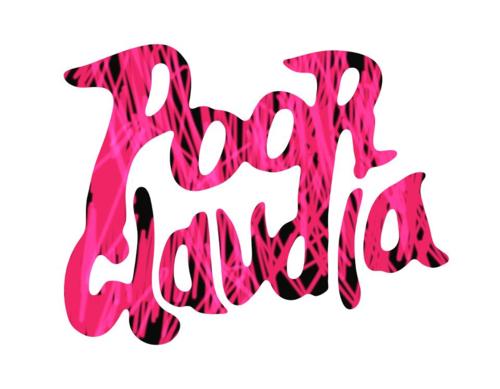
Details on the open reading period can be found, here.


